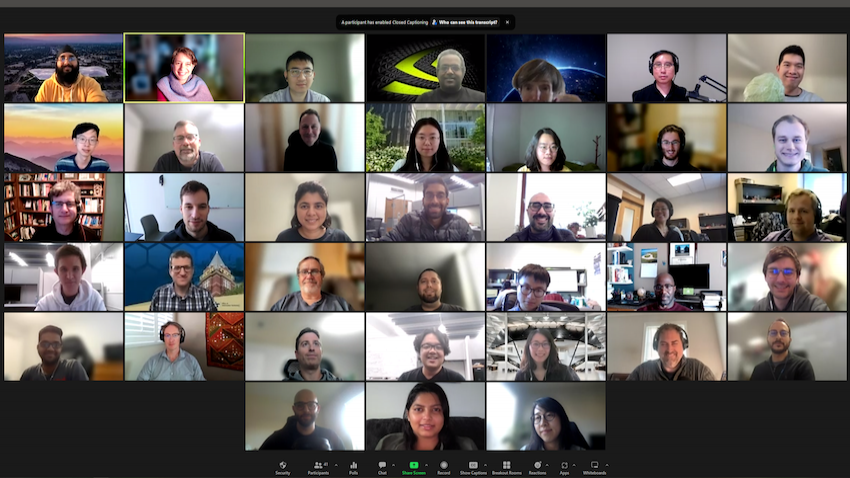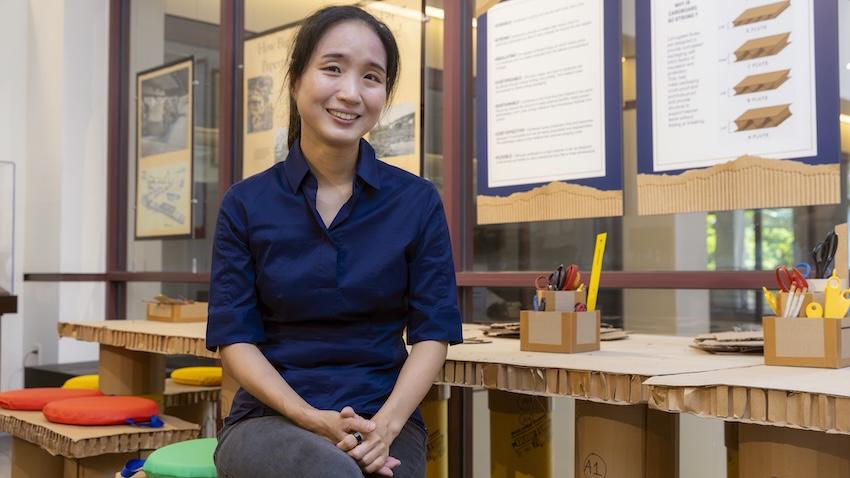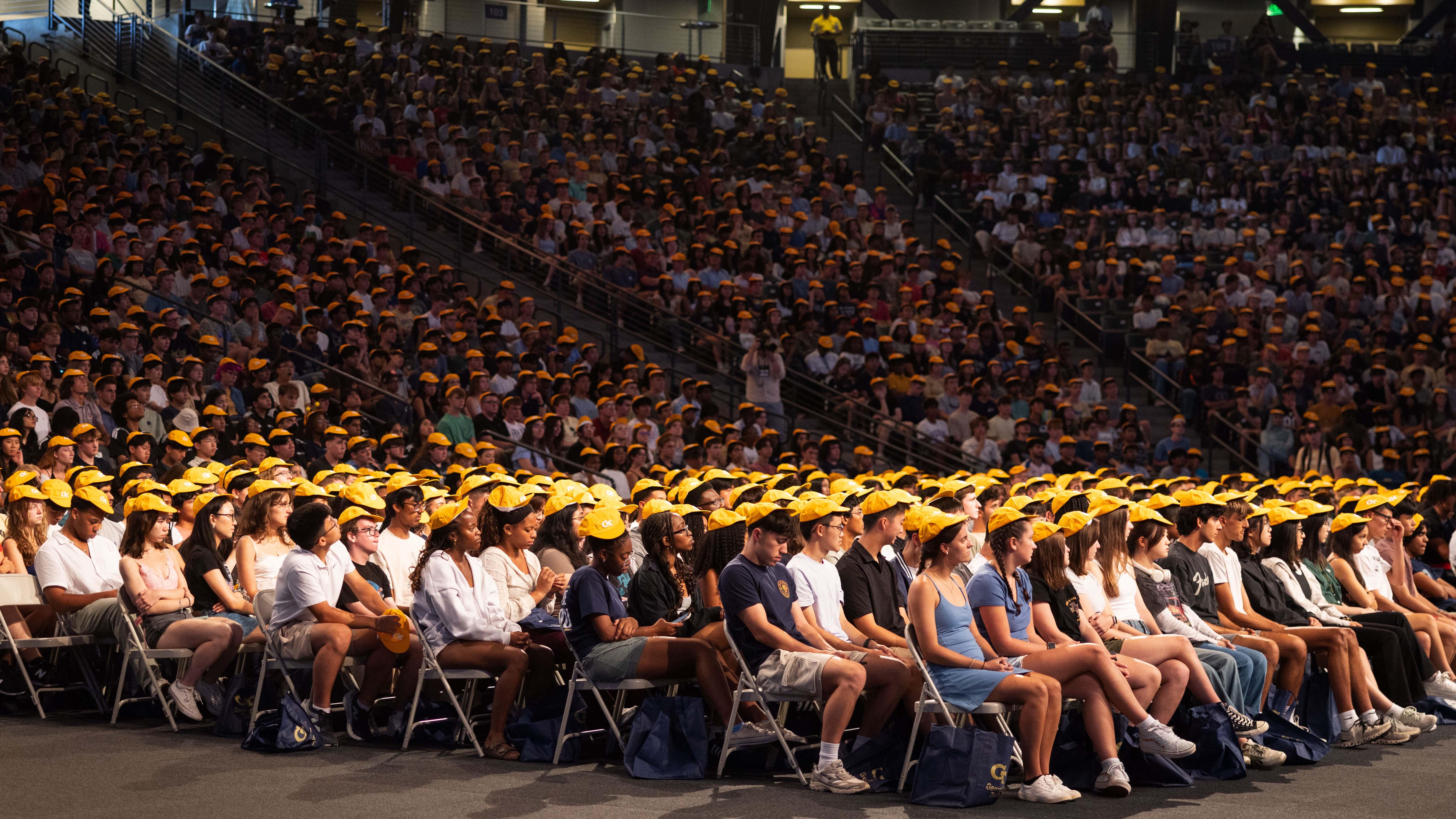
Researchers Optimize HPC Software at Interdisciplinary Hackathon
High-performance computing is all about speed. One of the fastest ways for researchers to refine their projects is through hackathons where they have access to the latest HPC hardware, as well as support from their peers.
Georgia Tech hosted a virtual open hackathon held Jan. 18-26, for participants to advance and test ongoing software on powerful HPC hardware. On the final day, teams presented research showcasing insightful applications in physics, medicine, computer science, and more.
School of Computational Science and Engineering (CSE) Assistant Professor Spencer Bryngelson coordinated the event with NVIDIA and the OpenACC Organization. This is the second hackathon Bryngelson has organized since arriving to Georgia Tech in 2021.
“Overall, this hackathon went really well once again,” Bryngelson said. “I am impressed with the presentations, and I hope that the teams leave satisfied with the progress made on their projects.”
Researchers from academia, national laboratories, and industry formed six teams in the event. Research scientists from NASA, NVIDIA, and Georgia Tech served as mentors to help teams through their projects and using available HPC hardware.
Georgia Tech researchers swarmed the hackathon with representation from nine schools spanning three colleges. These include: the Daniel Guggenheim School of Aerospace Engineering, School of Civil and Environmental Engineering, School of Chemical and Biomolecular Engineering, School of CSE, School of Computer Science, School of Computing Instruction, the George W. Woodruff School of Mechanical Engineering, School of Physics, and the Wallace H. Coulter Department of Biomedical Engineering- an academic unit shared among Emory University, Georgia Tech, and Peking University.
One team participated in the hackathon to accelerate their software that simulates particle assembly, an area with application in geomechanics, materials science, and even pharmacology. At the end of the hackathon, the team accelerated their entire two-dimensional simulation algorithm by 78 times and by 29 times in a three-dimensional subprocess.
A second team used the hackathon to improve their Monte Carlo algorithm with applications in nuclear physics. Specifically, the group improved precision of tracking particle spins through electric and magnetic fields.
Another team also optimized a Monte Carlo simulation, but with application to better study and improve oxygen exchange between body tissue. Here, the team needed to accelerate their code to track over 2.5 million photons during propagation. By the end of the hackathon, their code’s speed improved by 20 times.
While all six teams saw refinement of their individual projects, the hackathon also presented an immediate and tangible environmental benefit for all.
Software optimization makes supercomputers more energy efficient. Teams preserved energy costs the equivalent of removing 50 vehicles from use for a year and planting over 3,800 tree saplings through improvements developed during the hackathon.
“This hackathon was absolutely worth it,” said Ruijia Wang, a Ph.D. student in Tech’s School of Civil and Environmental Engineering. “It was a great learning experience and the potential application that we developed for our program is enormous.”
Teams ran their computer codes and programs on the latest HPC hardware available at Georgia Tech. The hackathon employed 81 total CPUs from Intel and AMD and 21 GPUs from NVIDIA, including the A100, A40, Tesla V100, and Quadro Pro models.
These CPUs and GPUs used in the hackathon belong to Georgia Tech’s Instructional Cluster Environment (ICE). ICE is a collection of two different computer clusters managed by the College of Computing and Partnership for an Advance Cluster Environment (PACE).
The ICE project originated in 2018 as an educational resource for graduate and undergraduate students to gain first-hand scientific computing experience. Along with using ICE in credit-bearing courses at Georgia Tech, PACE research scientists use ICE to host tutorials and workshops for researchers to improve their computational skills, like hackathons.
While the hackathon provided participants with opportunities to advance their research, it also acted as a laboratory for NVIDIA, and the HPC community overall, to study the latest hardware in action and attain user feedback.
This mutual relationship between hardware and software developers ensures the HPC field progresses forward together to continue overcoming computational challenges of the future.
“Thank you to the event co-sponsors, NVIDIA and OpenACC, and the additional mentors from NASA that helped make this hackathon happen,” Bryngelson said. “I would also like to acknowledge and thank the PACE team at Georgia Tech, who served dual roles as mentors and made sure the computing happened. We’re very fortunate to have such great people like them helping in so many different ways.”
As computing revolutionizes research in science and engineering disciplines and drives industry innovation, Georgia Tech leads the way, ranking as a top-tier destination for undergraduate computer science (CS) education. Read more about the college's commitment:… https://t.co/9e5udNwuuD pic.twitter.com/MZ6KU9gpF3
— Georgia Tech Computing (@gtcomputing) September 24, 2024


